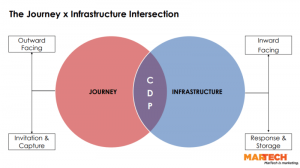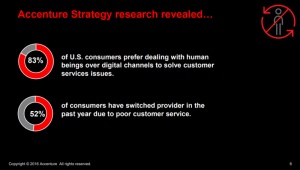>By Jonathan Rose, Published October 29, 2014
Blowing hot and cold
We’ve all been there.![]() You’ve struck up a rapport with your prospect. You’ve qualified them to the point where a scope of work has been agreed. Perhaps, a contract has even been drawn up and sent over.
You’ve struck up a rapport with your prospect. You’ve qualified them to the point where a scope of work has been agreed. Perhaps, a contract has even been drawn up and sent over.![]() Then…nothing.
Then…nothing.![]() No response to your emails. Your calls are ignored. Your previously warm lead has ‘gone cold’.
No response to your emails. Your calls are ignored. Your previously warm lead has ‘gone cold’.![]() Sometimes, though, this cooling off doesn’t occur so infuriatingly close to a closed deal.
Sometimes, though, this cooling off doesn’t occur so infuriatingly close to a closed deal.![]() The Harvard Business Review did some excellent research in 2011 (sadly – despite huge demand in the comments section – there has been no subsequent study) looking at how long it took 2,241 US companies to respond to a web-generated test lead:
The Harvard Business Review did some excellent research in 2011 (sadly – despite huge demand in the comments section – there has been no subsequent study) looking at how long it took 2,241 US companies to respond to a web-generated test lead:
![]() Although 37% responded to their lead within an hour, and 16% responded within one to 24 hours, 24% took more than 24 hours—and 23% of the companies never responded at all. The average response time, among companies that responded within 30 days, was 42 hours.
Although 37% responded to their lead within an hour, and 16% responded within one to 24 hours, 24% took more than 24 hours—and 23% of the companies never responded at all. The average response time, among companies that responded within 30 days, was 42 hours.
![]() In a separate study in the same year, HBR found that firms that tried to contact potential customers within an hour of receiving a query were nearly seven times as likely to qualify the lead (which HBR defined as “having a meaningful conversation with a key decision maker”) as those that tried to contact the customer even an hour later—and more than 60 times as likely as companies that waited 24 hours or longer.
In a separate study in the same year, HBR found that firms that tried to contact potential customers within an hour of receiving a query were nearly seven times as likely to qualify the lead (which HBR defined as “having a meaningful conversation with a key decision maker”) as those that tried to contact the customer even an hour later—and more than 60 times as likely as companies that waited 24 hours or longer.![]() Fundamentally, regardless of where it happens in the sales engagement process – whether at the start or nearing the finishing line of a closed deal – a warm lead can go cold at any moment.
Fundamentally, regardless of where it happens in the sales engagement process – whether at the start or nearing the finishing line of a closed deal – a warm lead can go cold at any moment.
When a warm lead goes cold
It’s helpful to remember that when a warm lead goes cold, it’s not the same as that lead being “lost”.![]() Perhaps the individual in question had another more urgent issue to deal with or a corporate priority emerged that had to be addressed. Maybe another competing supplier appeared on the scene, and they’ve decided to take more time to consider the options. Or maybe the prospective client got just was not ready to pull the trigger. Without any more lead insight, it is difficult to know what to do.
Perhaps the individual in question had another more urgent issue to deal with or a corporate priority emerged that had to be addressed. Maybe another competing supplier appeared on the scene, and they’ve decided to take more time to consider the options. Or maybe the prospective client got just was not ready to pull the trigger. Without any more lead insight, it is difficult to know what to do.![]() Here is where your content marketing should be an imperative asset for Sales.
Here is where your content marketing should be an imperative asset for Sales.
Using content to re-engage cold leads
![]() This information is what will keep a customer nurtured until they’re ready to purchase rather than move on the next piece of content. The real trick to making this work is understanding the needs of a customer around the time they’re considering a purchase.
This information is what will keep a customer nurtured until they’re ready to purchase rather than move on the next piece of content. The real trick to making this work is understanding the needs of a customer around the time they’re considering a purchase.![]()
![]()
- 1-2-1 Sales reachout with content
A personal one-to-one reachout by the salesperson can work wonders if it is not too nakedly salesy. It will mean you start sending pieces of content to leads with subject headers such as:![]()
“I saw this and thought of you…”
“This might be of use…”
“Remember when we spoke about this?”
Use the unique understanding of each lead that you’ve garnered from talking and listening to them to inform which piece of content you send to them. We all appreciate help, so use content to present yourself as an advocate for their success first, rather than just another sales op trying to close them.![]()
- Nurture campaign
Marketing automation has meant that previously cold leads that would have had to be abandoned by Sales because of various constraints can now be nurtured with a constant drip of automated communications by Marketing.![]() As with a 1-2-1 reachout, take a few pieces of valuable content like case studies, industry recognition, or even just a simple “is now a better time” personal messages and put them to work in your marketing automation system.
As with a 1-2-1 reachout, take a few pieces of valuable content like case studies, industry recognition, or even just a simple “is now a better time” personal messages and put them to work in your marketing automation system.![]() Unlike the 1-2-1 sales reachout, nurture campaigns enable a longer view of gently touching base with a prospect – perhaps over a 90 or 120 day time horizon (or longer if your sales cycles are very long). You’ll be surprised at the engagement that comes from simply following up over a longer time horizon than this month or this quarter.
Unlike the 1-2-1 sales reachout, nurture campaigns enable a longer view of gently touching base with a prospect – perhaps over a 90 or 120 day time horizon (or longer if your sales cycles are very long). You’ll be surprised at the engagement that comes from simply following up over a longer time horizon than this month or this quarter.![]()
- Let inbound marketing do its job
After a point a lead might be so unresponsive that even a prolonged nurture campaign will not be enough to reactivate them. At this point, there is little Sales or Marketing can do other than ‘kicking’ the lead out of the system.![]() Yet here, too, content plays an important role. By simply committing to content marketing, an abandoned or ‘lost’ lead may well find themselves once again reactivate themselves by consuming content on your company blog or social media feed or a piece of native advertising. Each interaction ultimately leading them to becoming a warm lead once again.
Yet here, too, content plays an important role. By simply committing to content marketing, an abandoned or ‘lost’ lead may well find themselves once again reactivate themselves by consuming content on your company blog or social media feed or a piece of native advertising. Each interaction ultimately leading them to becoming a warm lead once again.
Business Articles | Business 2 Community
(490)
Report Post






